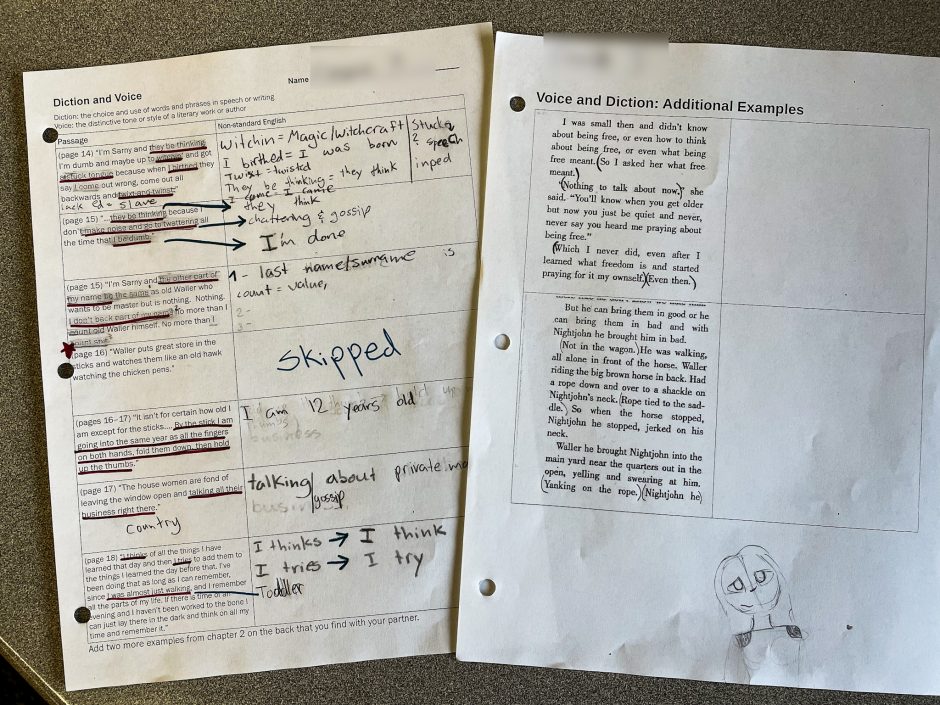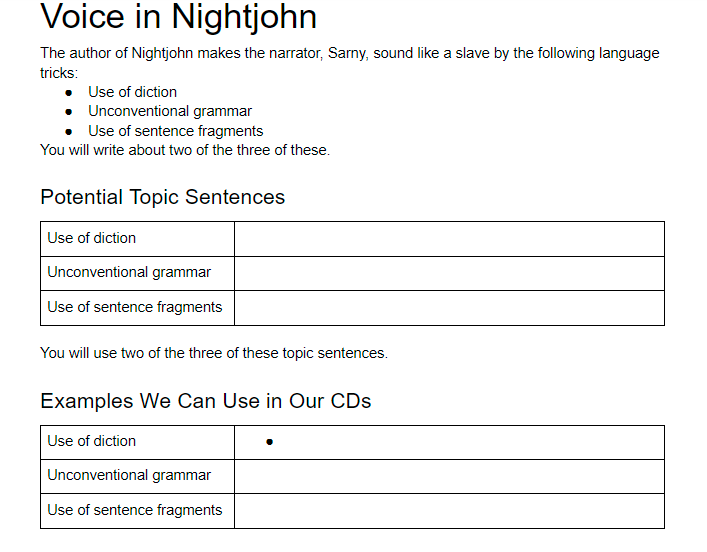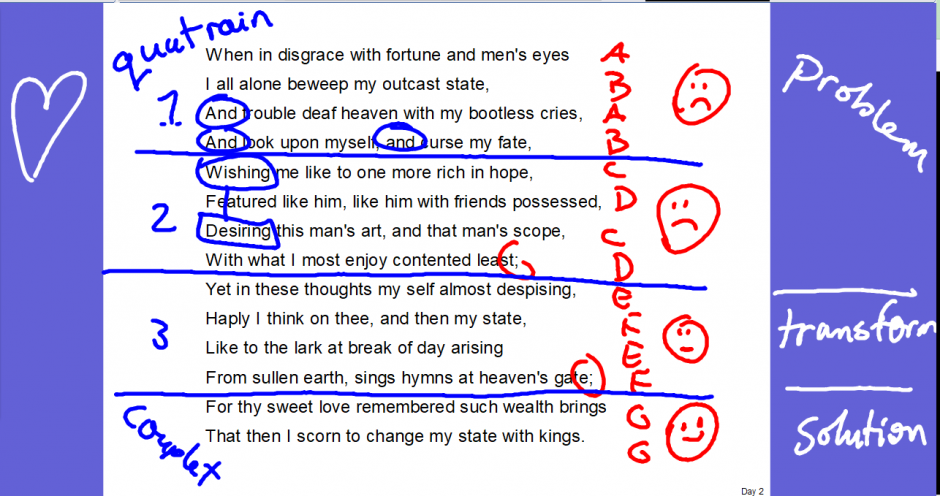Sometimes, I find myself wondering just how much time I need to give students to finish an assignment. If they’re playing around and wasting time, then they’re doing just that — wasting time. Why should they get extra time? But if I assess what they do turn in, then it’s so incomplete that it’s more an assessment of behavior rather than skill.
Take our current project: we’re writing about how the narrator effectively creates the voice of an uneducated slave girl in Nightjohn by judicious decisions in diction, regularly irregular grammar, and extensive use of fragments. We’ve gone over all this stuff. We’ve practiced finding it. We’ve found it. We’ve noted it.

I’ve planned out everything so that what they have to do is less figuring-out-how-to-do-it and just doing it. We determined potential topic sentences as a class. We found evidence in groups. (Much of the evidence they already had — it should have taken them about 5 minutes to find evidence because it was in earlier work.)

At this point, students who have been focused and working well are almost done; those who haven’t are not close to done. They should work on it over the long weekend. Will they? Of course not. How do I know this? Fifteen years of teaching eighth grade at this school has shown me that 85% of the kids in on-level classes just won’t do anything on their own at home. Anything at all.
English I students, on the other hand, finished up their analysis of “Sonnet 29” with an examination of the elements of a sonnet:

We then turned our attention to “Sonnet 18” — undoubtedly Shakespeare’s most famous sonnet:
Shall I compare thee to a summer’s day?
Thou art more lovely and more temperate:
Rough winds do shake the darling buds of May,
And summer’s lease hath all too short a date:
Sometime too hot the eye of heaven shines,
And often is his gold complexion dimm’d;
And every fair from fair sometime declines,
By chance or nature’s changing course untrimm’d;
But thy eternal summer shall not fade
Nor lose possession of that fair thou owest;
Nor shall Death brag thou wander’st in his shade,
When in eternal lines to time thou growest:
So long as men can breathe or eyes can see,
So long lives this and this gives life to thee.
The difference in what they’re working on is striking, but it’s less striking when you see the difference in how they work. The kids in the honors classes, by and large, are focused and studious. They do homework when I require it. They pay attention when I’m demonstrating. They stay on task when I ask them to cooperate on a task. They remain silent when I tell them I want them to do some step or other on their own.
0 Comments